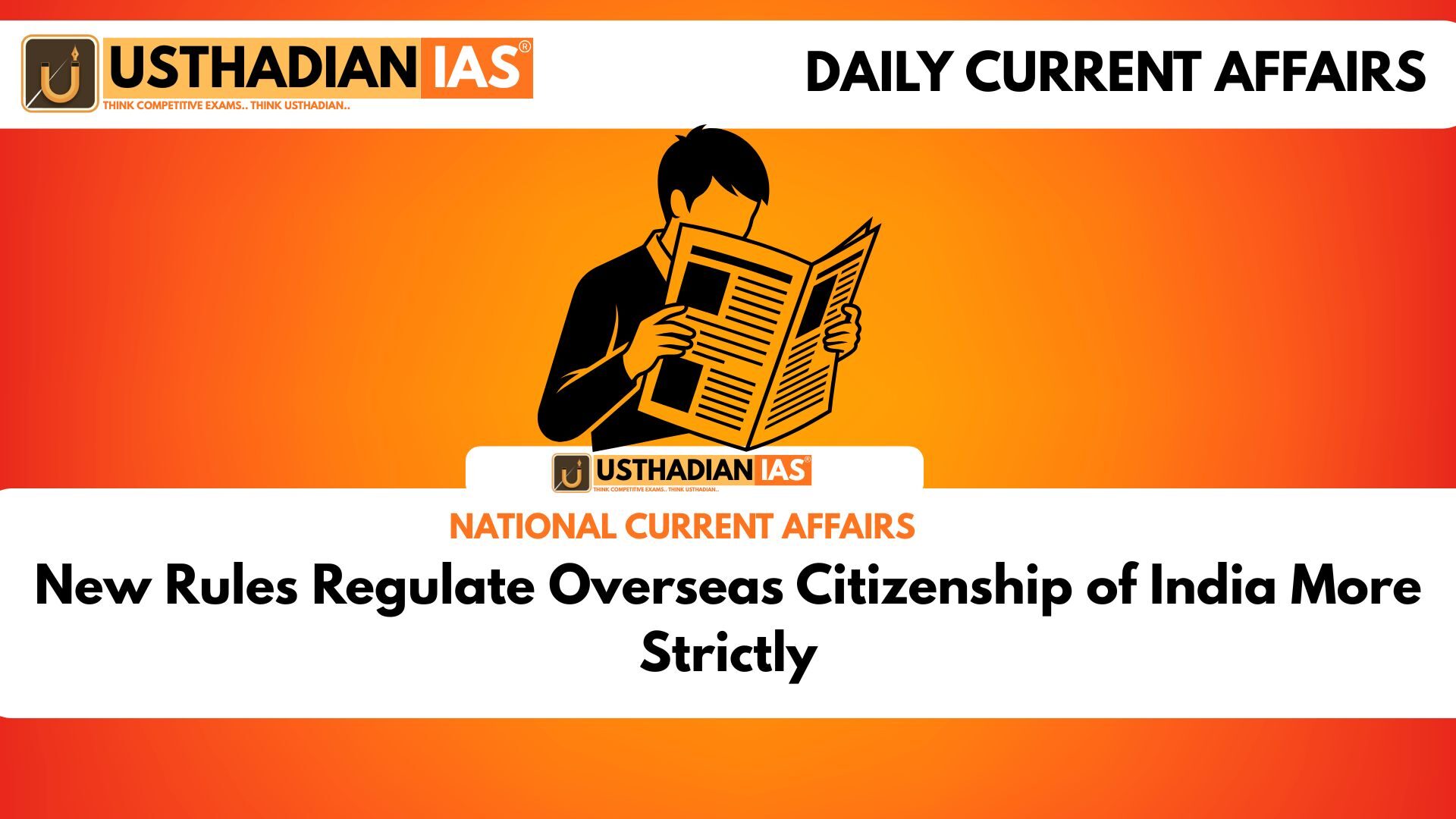Overview of OCI
New Rules Regulate Overseas Citizenship of India More Strictly: The Overseas Citizenship of India (OCI) scheme was introduced in 2005 to grant certain foreign nationals of Indian origin lifelong visa-free travel to India.
It is available to persons who were Indian citizens on or after 26 January 1950 or eligible through lineage.
Static GK fact: OCI excludes individuals who have ever held Pakistani or Bangladeshi citizenship or whose parents or grandparents belonged to those nations.
OCI offers multiple benefits, including exemption from visa requirements, parity with NRIs in various fields, and long-term residency rights. However, it does not provide full Indian citizenship or voting rights.
Key Changes in Rules
The Ministry of Home Affairs (MHA) has issued updated rules tightening the grounds for OCI cancellation.
Under the new provisions, registration can be cancelled if an individual:
- Is sentenced to imprisonment for two years or more.
- Is charge-sheeted for offences punishable by seven years or more.
Static GK fact: These rules apply even if the offence is committed outside India, provided it is recognised under Indian law.
Additional Grounds for Cancellation
Apart from criminal grounds, the OCI card can also be cancelled if:
- Registration was obtained through fraud or concealment of facts.
- The person displays disaffection towards the Constitution of India.
- The individual engages in unlawful trade or communication with enemies during wartime.
- An imprisonment of two years or more occurs within five years of registration.
- It is deemed necessary in the interest of sovereignty, security, foreign relations, or public interest.
Legal Framework
The new rules are empowered under clause (da) of section 7D of the Citizenship Act, 1955.
Static GK fact: The Citizenship Act, 1955 governs acquisition, determination, and termination of Indian citizenship.
The Ministry of Home Affairs is the primary enforcement authority, with the Ministry of External Affairs supporting cancellation cases involving international elements.
Impact of the Amendments
The move represents a stronger oversight mechanism on OCI holders to ensure that the scheme is not misused.
By extending applicability globally, India strengthens its control over foreign nationals of Indian origin who violate serious laws or act against national interest.
This reflects the government’s ongoing emphasis on national security and constitutional integrity.
Static Usthadian Current Affairs Table
New Rules Regulate Overseas Citizenship of India More Strictly:
| Topic | Detail |
| OCI Scheme Launch Year | 2005 |
| Eligibility Date Reference | 26 January 1950 |
| Excluded Countries | Pakistan, Bangladesh |
| Main Benefit | Lifelong visa-free travel to India |
| Citizenship Act Clause for Cancellation | Section 7D (da) |
| Criminal Grounds for Cancellation | 2+ years imprisonment, charge-sheet for 7+ years offences |
| Non-criminal Grounds | Fraud, disaffection to Constitution, security/public interest |
| Enforcement Authority | Ministry of Home Affairs |
| Supporting Authority | Ministry of External Affairs |
| Global Applicability | Yes, for offences recognised under Indian law |








